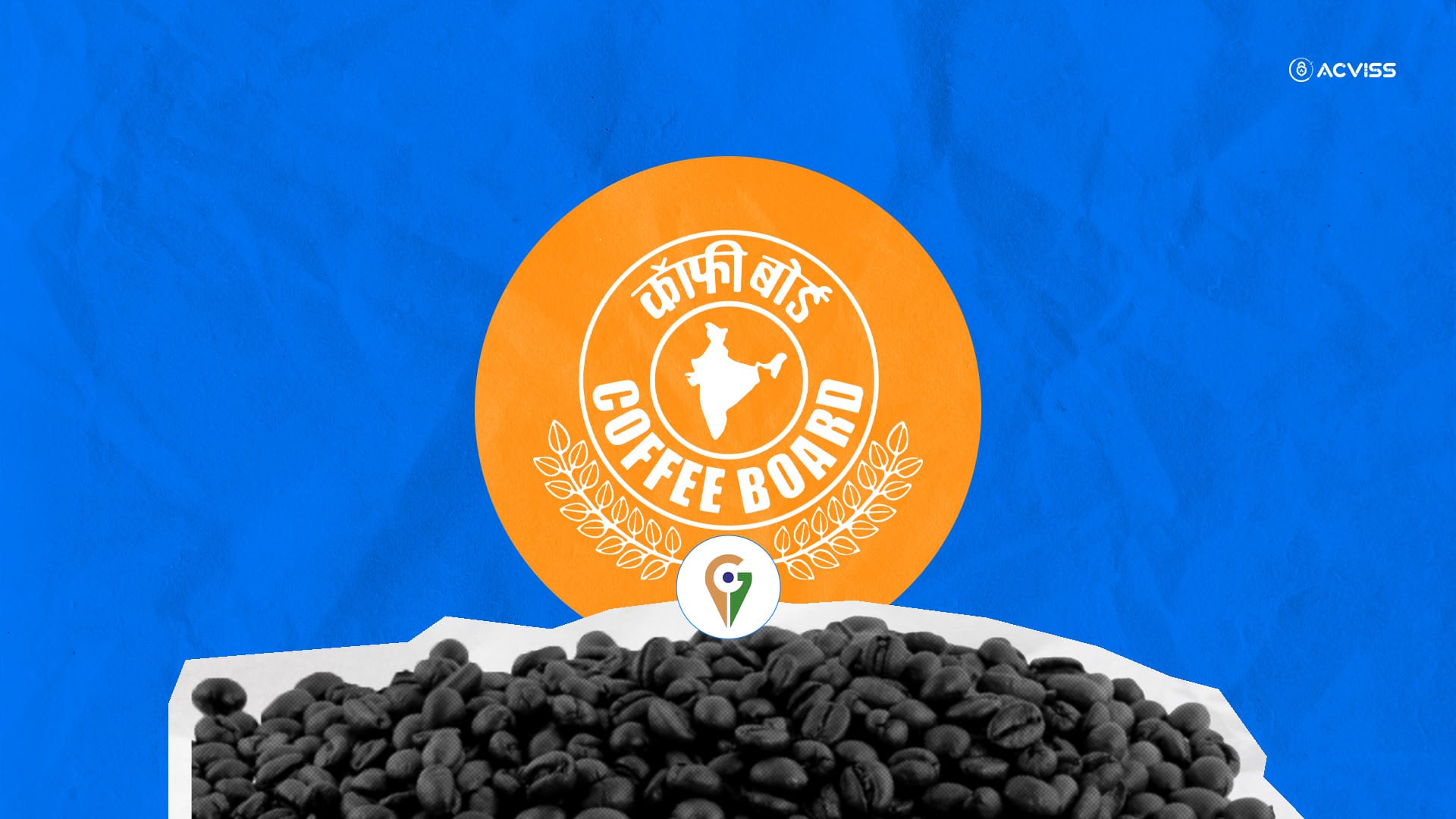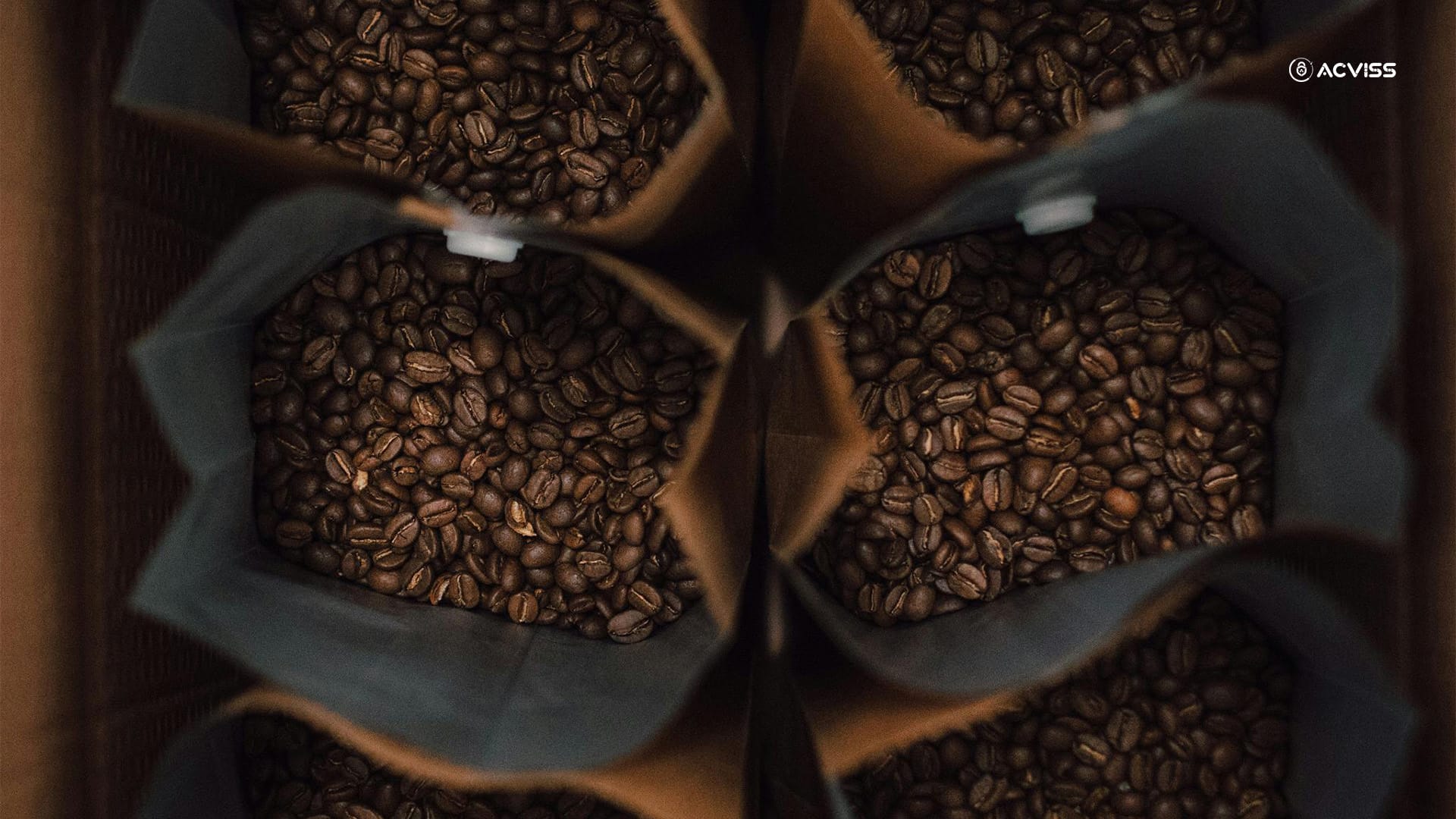Exploring GI-Tagged Products Under the Indian Coffee Board

In 2019, the Indian government awarded a geographical indication (GI) tag to 5 varieties of coffee grown and produced in the country. What is a geographical indication tag? GI tag is a certification that helps identify the uniqueness of products based on their quality and authenticity attributable to a geographical location.
But what was the Indian government’s primary aim behind awarding only 5 Indian coffee varieties this tag? The GI-tagged coffee varieties embody the character of their respective regions and, thus, offer an authentic taste that is hard to replicate elsewhere. So, the Coffee Board of India released a GI tag for all five unique flavoured coffee varieties to help them get maximum market and price for their distinctive, premium-quality produce across the world.
So, what are those five coffee varieties that have been accredited with the GI tag by the Indian Coffee Board? Let’s discover!
The Role of the Indian Coffee Board in Protecting and Promoting GI-Tagged Coffee Varieties
The Indian Coffee Board, established under the Ministry of Commerce and Industry, Government of India, has played a vital role in preserving India’s coffee heritage. In India, approximately 4.54 lakh hectares of land is used to cultivate coffee by about 3.66 lakh coffee farmers, of which 98% is produced on a small scale. Moreover, India is the only nation in the world where the entire coffee is cultivated and grown under the shade by hand-picking and sun-drying it.
But despite all these efforts, farmers didn’t get a fair price for their produce until the Coffee Broad of India released the GI tag for varied coffee varieties.
This government organisation not only provides crucial support to coffee farmers but also ensures that GI-tagged coffee maintains its unique identity and quality. The board facilitates research on coffee cultivation, develops quality standards, and encourages sustainable farming practices.
To promote GI-tagged coffee varieties, the Coffee Board of India collaborates with regional coffee associations, state governments, and even international bodies. It sets standards defining the quality of GI-tagged coffee, conducts awareness campaigns, and creates platforms for showcasing them. Additionally, the board conducts workshops and training sessions for farmers to improve their understanding of GI certifications and the standards that come with them.
Through these initiatives, the Indian Coffee Board helps elevate these speciality coffees, connecting them to niche markets that appreciate authenticity, transparency, and heritage. It ensures that premium-quality, distinct coffee varieties in India get the maximum price worldwide.
GI-Tagged Coffee Varieties in India

India’s diverse landscapes contribute to a range of coffee profiles, from the robust flavours of Karnataka to the subtle notes of Tamil Nadu and the earthy richness of Andhra Pradesh. The flavour profile, aroma, and quality of these GI-tagged varieties, along with others like Manjarabad Arabica Coffee and Nilgiris Arabica Coffee, are closely linked to their place of origin, ensuring a unique and consistent experience for coffee lovers worldwide.
Here are some of the most renowned GI-tagged coffees in India:
1. Coorg Arabica Coffee (Karnataka)
Produced in the lush region of Kodagu district in Karnataka, Coorg Arabica Coffee is known for its smooth body and well-balanced acidity. Coorg's distinct climate and soil conditions give it a unique aromatic profile, setting it apart from other Arabica varieties.
2. Wayanad Robusta Coffee (Kerala)
The Wayanad district of eastern Kerala produces a robust and full-bodied coffee with a hint of chocolatey undertones. The Robusta beans produced here stand out for their high quality and resilience, as they are grown under shade trees that enrich the soil and add complexity to the beans.
3. Bababudangiri Arabica Coffee (Karnataka)
Produced in the birthplace of coffee in India- Bababudangiri hills of Chikmagalur district in Karnataka, this Arabica coffee is one of the oldest GI-tagged varieties in India. It’s known as ‘high-grown coffee’ because it slowly rips in the mind climate and, thus, acquires a special aroma and taste.
Moreover, Bababudangiri Arabica coffee is selectively hand-picked and processed via natural fermentation, exhibiting mild flavour, balanced acidity, and striking aroma with a note of chocolate. In a nutshell, this GI-tagged coffee variety reflects the unique terroir of its mountainous region.
4. Chikmagalur Arabica Coffee (Karnataka)
The region of Chikmagalur district in the Deccan plateau of Karnataka’s Malnad region is renowned for its high-altitude Arabica coffee plantations. This coffee is mildly acidic with fruity undertones, providing a delicate taste for coffee enthusiasts.
5. Araku Valley Coffee (Andhra Pradesh)
Grown by tribal farmers in the hilly tracks of Vishakhapatnam district in Andhra Pradesh and also the Odisha region at an elevation of 900 to 1100m Mean Sea Level, Araku Valley Coffee has made a mark on the global coffee stage for its organic farming practices and natural sweetness.
Farmers from these regions are recognised all over the world for their organic approach, which is to follow management practices to produce coffee, such as using organic manures, organic pests, and green manuring. With flavours ranging from fruity to slightly nutty, Araku coffee is a favourite among artisanal coffee drinkers.
Challenges in Preserving the Quality and Authenticity of GI-Tagged Coffee Varieties
While the Coffee Board of India and local growers work tirelessly to preserve the authenticity, unique flavour, and taste of GI-tagged coffees, they often find themselves in a difficult position. The following discussed some of the key obstacles that impact the preservation of these coffee varieties:
- Climate Change Impact: Rising temperatures and unpredictable weather patterns have started affecting coffee production, especially high-altitude varieties like Bababudangiri Arabica and Coorg Arabica. Extreme weather events threaten the delicate balance of soil nutrients and water availability essential for high-quality coffee cultivation.
- Labour Shortage and Farming Challenges: Coffee farming, particularly for speciality GI-tagged varieties, is labour-intensive. Some of them are carefully hand-picked and processed, requiring labour in large numbers. However, many rural areas in India are facing a shortage of skilled labour, and without adequate hands, farmers struggle to maintain the quality and consistency expected of GI-tagged coffees.
- Pest Infestation and Disease Control: Coffee crops are susceptible to pests and diseases, which can devastate yields and quality. For GI-tagged coffees, maintaining organic or low-impact farming practices is crucial to upholding standards. However, pest control can be costly and labour-intensive, putting an additional strain on small farmers.
- Market Competition and Price Pressures: The global coffee market is highly competitive, and the pressure to keep prices low can sometimes impact quality. Farmers of GI-tagged varieties face challenges maintaining standards while meeting market demands, especially when low-cost coffee products are available.
- Difficulty in Certification and Traceability: Ensuring that all GI-tagged coffee meets the required standards is another challenge that the Indian coffee board faces. The Indian government organisation needs to implement strict traceability measures and tools, such as Acviss Origin, to prevent non-GI coffee from being falsely sold as GI-certified, which could harm the reputation of these esteemed varieties.
- Need for Consumer Awareness: Despite the uniqueness of GI-tagged coffees, many consumers are not aware of their significance. Increasing consumer awareness through educational campaigns can enhance demand, encouraging farmers to continue cultivating these high-quality varieties.
Preserving Indian Coffee Heritage with Acviss Origin
The Indian government has come up with the initiative of geographical indication tagging for coffee varieties not only to increase their market value but also to protect a cultural heritage that holds stories of tradition, geography, and local taste.
However, preserving and promoting the quality and authenticity of GI-tagged Indian coffee varieties is not that easy as they face modern challenges. In such a case, adopting innovative product authenticity solutions becomes essential.
One such solution is Acviss Origin, which enables transparent and secure product authentication, ensuring that GI-tagged coffees maintain their quality and authenticity. The tool has enabled the Indian Coffee Board and coffee growers to enhance traceability and prevent the misuse of GI tags, reinforcing consumer trust in these speciality varieties.
Want to know more about GI tagging and preventing product counterfeiting? Get in touch with us today and join the ranks of global leaders in the fight against counterfeits and build a safe and secure shopping experience for your customers!
